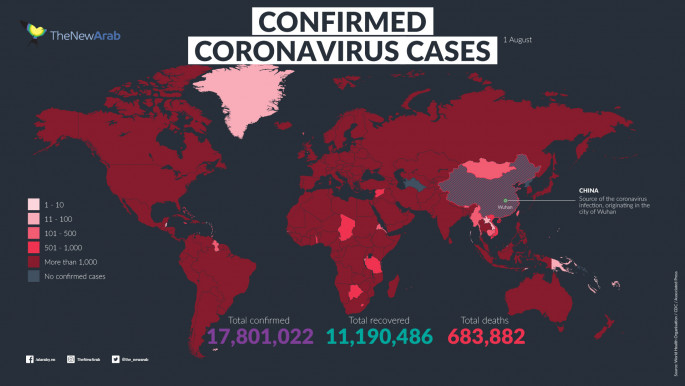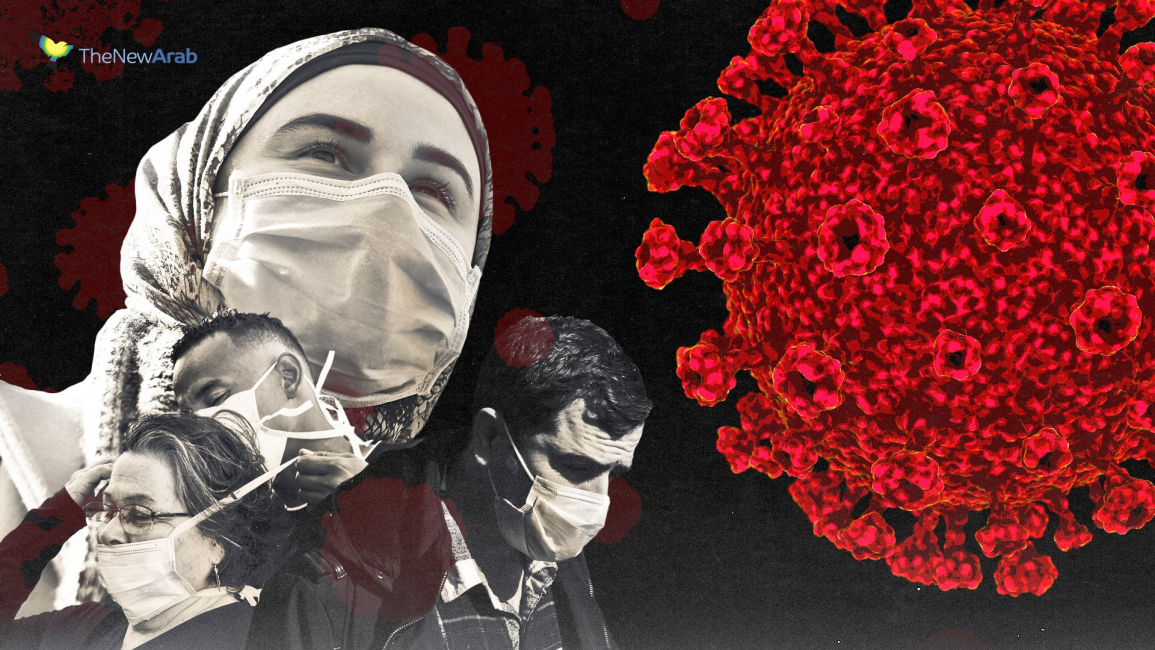The Middle East at war with coronavirus: Top stories from 30 June
1. Vaccine in the making in Iran
Iran's health minister Said Namaki said on Tuesday that a coronavirus vaccine in the making has "mostly passed animal models successfully" and that the country "will start human clinical trials soon".
His remarks came as the government announced nearly 150 new deaths a day after reporting a record high daily toll.
The Islamic republic has struggled to contain Covid-19 since it reported its first cases - two deaths - in the Shia holy city of Qom in late February.
Official figures have shown a rising trajectory in new confirmed cases since early May, when Iran hit a near two-month low in daily recorded infections.
But officials have repeatedly denied the upward trend amounts to a second wave. Read more here.
2. Iraq virus spike risks pushing strained doctors over the edge
Unpaid salaries, mask shortages, threats from patients' families - doctors across Iraq are cracking under such conditions, just as they face a long-feared spike in coronavirus cases.
"We're collapsing," said Mohammed, a doctor at a Covid-19 ward in Baghdad who declined to use his full name so he could speak freely.
"I just can't work anymore. I can't even focus on the cases or the patients," he said, speaking to AFP at the end of a 48-hour shift.
Iraq has officially registered more than 47,000 coronavirus cases, with doctors increasingly infected.
"I personally know 16 doctors who caught it over the last month," Mohammed said.
The country's overall death toll is heading towards 2,000, with official daily fatalities starting to top 100 in the past week - and doctors warn they cannot keep up. Read more here.
 |
| Click to enlarge |
3. Syria donors gather as virus, economic chaos deepen crisis
Economic chaos, soaring food prices and the coronavirus pandemic are plunging Syria deeper into crisis as the country's civil war grinds into its 10th year, European Union and United Nations officials said Tuesday at an online conference to raise funds to help Syrians who fled their homeland and those who are still there.
The war in Syria has killed more than 400,000 people and sparked a refugee exodus that has destabilised neighbouring countries and impacted Europe. Around 11 million people are in need of humanitarian assistance, and some 9 million don’t have enough to eat. More than half of the population have no jobs.
"Humanitarian needs remain huge in Syria and around," EU foreign policy chief Josep Borrell said as he announced that EU institutions would donate 2.3 billion euros ($2.6 billion) for this year and next.
International Federation of the Red Cross and Red Crescent societies President Francesco Rocca said the coronavirus has sparked "a multitude of new and complex challenges including the restriction of movement and goods, the delay of certain field activities, the closure of borders and a critical insufficiency of protective equipment for staff and volunteers".
UN Resident Coordinator and Humanitarian Coordinator for Syria Imran Riza, speaking from Qamishli in northern Syria, told The Associated Press that the crises are taking a devastating toll.
"We are on the cusp of all these multiple crises," Riza said. "You see kids that are clearly now getting malnourished. You are seeing levels of malnutrition that we have never seen in the last nine years and this gets worse and worse if you don’t take action right now." Read more here.
4. Beirut airport prepares to reopen as Lebanon eyes tourism dollars
Beirut's Rafic Hariri International Airport is set to reopen on Wednesday after grounding flights due to the coronavirus epidemic, as Lebanon prepares to receive thousands of travellers.
The resumption of commercial flights comes as the country suffers one of the worst economic crises in decades and in need of a new injection of cash.
Images published by local media showed the airport empty on Saturday as new preventive social distancing measures were put in place and will be implemented upon passengers' arrival.
The images showed the airport halls plastered with stickers and signs to avoid crowding at security checks and baggage claim.
Lebanon's only airport has been closed to flights since 18 March, in a bid to contain the spread of the novel coronavirus. Read more here.
5. Fire in Egypt coronavirus ward kills seven patients
At least seven Covid-19 patients died in a fire which broke out in the isolation ward of a private hospital in the coastal Egyptian city of Alexandria on Monday, according to the country's public prosecutor.
Preliminary reports suggest that an electric short-circuit sparked the blaze, which began after an air-conditioner unit exploded.
Nurses rushed to the scene and found patients in the intensive care unit overcome by clouds of smoke. Six men and one woman died, according to Governor Mohamed El-Sharif.
"The fire was huge, and none of the workers could have contained the situation because of its swift spread" the Badrawy Hospital said in a statement, posted on social media. Read more here.
Follow us on Facebook, Twitter and Instagram to stay connected



